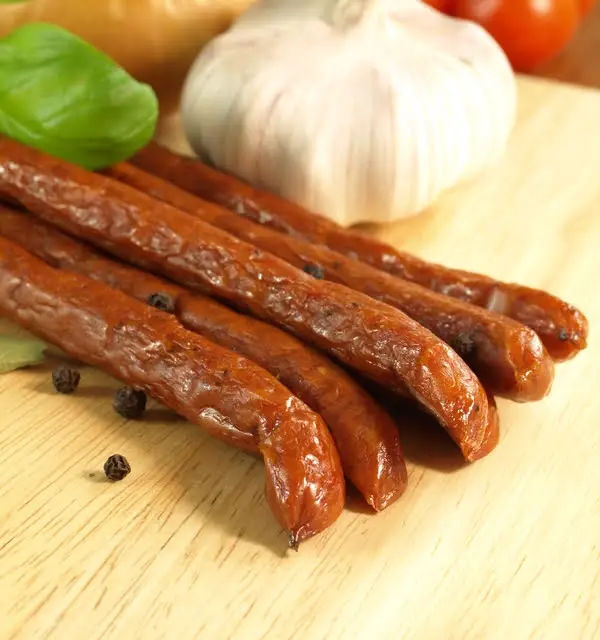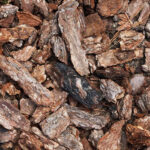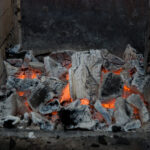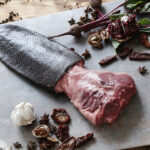Snack sticks, such as venison, beef, and turkey are a convenient way to enjoy a snack on the go.
But are venison snack sticks healthy? Is it worth paying a processor or investing the time to make them yourself?
As you narrow down what works best in your diet, adding venison snack sticks could be a game changer.
Table of Contents
- Are Venison Snack Sticks Healthy?
- What to Look for in Venison Snack Sticks
- Final Thoughts
- Related Posts
Are Venison Snack Sticks Healthy?
Venison snack sticks are arguably one of the best options for any diet featuring meat. It is a leaner meat, has tons of protein, and contains essential minerals like iron, zinc, and potassium. Depending on which brand you find, these might differ based on ingredients.
Benefits of Venison Snack Sticks
Assuming you have found a quality brand for venison snack sticks, you can enjoy a variety of benefits that are associated with venison.

Minerals like iron, zinc, and potassium are just the start in addition to the burst of protein.
Venison snack sticks are great for just about every diet. Most commonly, you will see people eating these that are on an animal-based, carnivore, keto, or even a diabetic diet.
Complete Source for Protein
As a rule of thumb, for every 100 grams of venison, there are 24 grams of protein. On average, you are getting roughly seven grams of protein per stick.
It also contains essential amino acids that our bodies need in order to build muscle. These are crucial to anyone’s diet because we cannot make those on our own.
Low Fat, Carb, Sugar, and Cholesterol
For those that are looking for a meat snack that is low in fat, venison is a great option. In a one-ounce stick, there are usually 2.5 grams of total fat and one gram of saturated fat.
In addition to low fat, venison snack sticks also have little to no carbs depending on the brand that makes it.
There is also a trace amount of cholesterol, under 100 calories, and typically just a gram of sugar, making this snack a great option for any diabetic.
Excellent Source of Iron and Zinc
Haem iron is one of the best types of iron that our bodies need and is easily absorbed.
In different parts of the world, such as the United Kingdom, there are more cases of iron deficiency since they do not typically eat venison.
Heme iron is abundant in venison, as well as zinc. In just 100 grams of venison, you get about 30 percent of the daily requirement for zinc.
Packed with B-Vitamins
Venison has tons of vitamins B6 and B12, which are important to the brain and body.
A deficiency in those vitamins could lead to mood changes, lack of energy, and difficulty making decisions. Eating a few venison snack sticks could help balance those levels.
What to Look for in Venison Snack Sticks
Most venison products nowadays are farm-raised, which can either be good or bad depending on your ideas of nutrition.
Most farm-raised animals are fed lower-quality grains, soy, and corn, which are not great for humans.
Luckily, venison can be harvested during deer hunting seasons and you can bypass all of those dietary issues from a farm.
If you cannot hunt one yourself, consider buying snack sticks from your local butcher or wild game processor. If that is also an issue, consider buying the best possible option.
Grass-Fed or Pasture Raised
It is rare to find an organic venison snack stick or meat, so the best option would be either grass-fed or pasture-raised.
This lets you know that the venison you are eating was mostly on grass or grazed on pasture, rather than fed lower quality foods such as grains, corn, and soy.
Beef Casing
In most venison snack sticks, the meat is placed within a beef casing. In some cases, lamb might be used or pork.
Ideally, you want the beef to be the one it is cased in, rather than pork, since pigs are typically fed corn, soy, and grains.
Low Ingredients
It is best to find snack sticks that have very few ingredients. The more flavors a brand is trying to create means the more additions they are putting into the product.
Adding garlic, peppers, and spices could also disrupt your gut if you are sensitive to those. If you can find one with five or fewer ingredients, then that is a good start.
Making Your Own
If you are able to process your own venison or can ask your local butcher to make them for you, this would be ideal.

During hunting season, harvesting your own deer is an excellent way to reward yourself with quality meat.
You will have complete control over what you put into your venison sticks. In addition to what you put into them, you are likely not going to put any preservatives into them or harmful ingredients.
Shelf Life
If you make your own venison snack sticks, they will need to be stored properly to preserve them so they last the maximum amount of time before spoiling.
This means six months in the refrigerator or roughly a year in the freezer, assuming an airtight container or vacuum-sealed bag.
You want to avoid store-bought ones that have a ton of preservatives or additives like MSG. Most still use encapsulated lactic acid, which is not the worst thing for you in small doses…but I still recommend avoiding it if you can.
Final Thoughts
Venison snack sticks overall are a great and healthy snack option. They are packed with nutrients and protein and are pretty darn good. 10/10 recommend!






